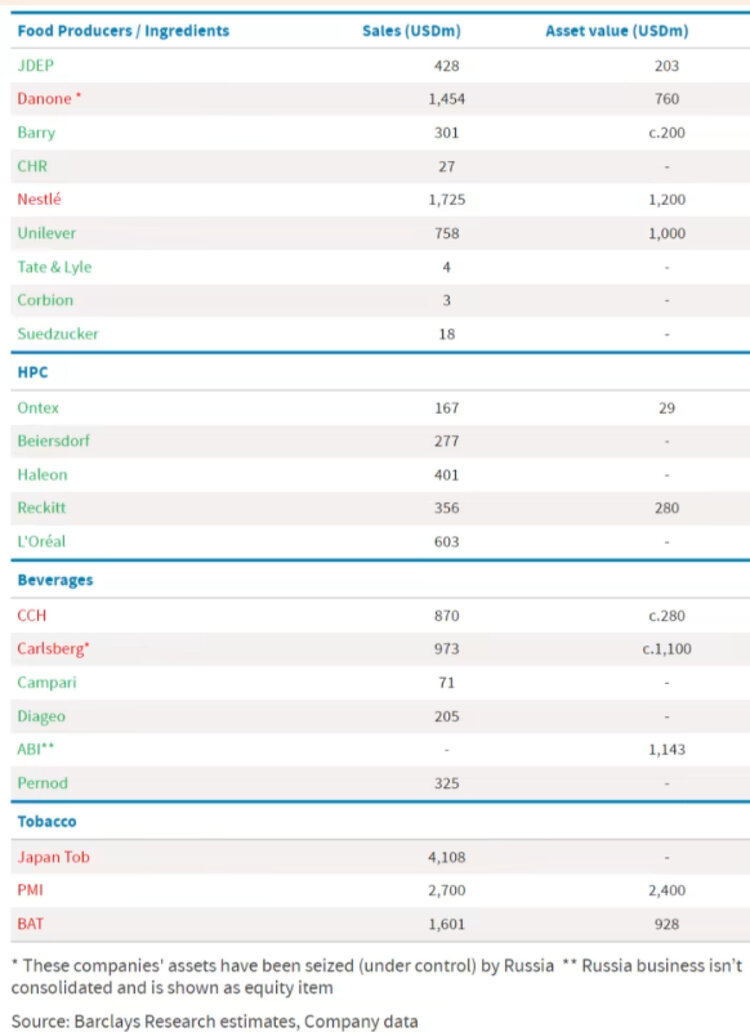One of the largest British banks has compiled a list of western companies - candidates for nationalization in Russia
The highest risk of expropriation is for foreign companies from the raw materials sector
Commodity companies, Nestle, Philip Morris International and similar Western corporations that continue to operate in Russia are the most likely potential targets for nationalization by the Russian authorities. This opinion was presented by British analysts at an investment conference held by Barclays Bank, the Financial Times reports.
In early September, Moscow may publish a list of companies from "unfriendly countries," Jocelyn Spottiswood of Alaco, a London-based firm that advises companies on governance, business risk assessment, dispute resolution, and other issues, said at the conference. The companies on the list are at risk of being expropriated, Barclays analysts added in a conversation with clients.
According to the bank, foreign companies from the commodity sector face the highest risk of expropriation; technology companies have a lower risk due to the complexity of their operations. An additional risk for consumer goods manufacturers is the Russians' love of Western brands.

Spottiswood believes that the list will include companies with at least 4,000 employees or revenues of more than $825 million or assets of more than $1.65 billion. It is unclear whether these figures apply exclusively to Russian operations, the FT notes.
Barclays analysts dealing with consumer companies have compiled a list of Western organizations in their sector. The companies in the consumer sector with the highest revenue are tobacco companies. British American Tobacco (BAT – cigarettes under the Kent, Vogue, Java, etc. brands) announced in February that it intends to transfer its Russian business to a new owner by the end of this year.
Philip Morris International, the world's largest tobacco producer (PMI – cigarettes under the Marlboro, L&M, Parliament, and Chesterfield brands), announced plans to leave the Russian market more than a year ago. The Wall Street Journal reported in March that the company, which has more than 3,000 employees in Russia, is looking for buyers for its business.
Another giant in the consumer sector, the Swiss Nestle, has replaced some of its flagship products with local brands. For example, instead of KitKat, the company now produces Goodmix bars, and instead of Nesquik products, it produces products under the Khrutka and Chudastik brands. The company, which has about 7,000 employees, has "radically reduced" its product range and now produces only "basic products for the local population," a Nestle spokesman told CNN.
International investors apparently believe that there are no good options, and therefore the Russian business can already be written off, whether the Kremlin confiscates it or not. Following the announcement of the nationalization of Danone Russia and Baltika, Danone shares fell by 0.7% and Carlsberg by 1.8%, but these losses were recovered within a week.
Background. As a reminder, the Prime transportation company is suspending services for Pepsi, Nestle and other businesses that have not withdrawn from Russia.